Auras and Hüzün: Istanbul, New York, Uzerche
“Real museums are places where Time is transformed into Space.” ― Orhan Pamuk, The Museum of Innocence
In this edition:
❃ Places - a brief walk in Uzerche, France
❃ Stories - a conversation in a bar in The Hague, The Netherlands
Places: Walking in Uzerche
I spent the last week tucked away in the French countryside and decided to visit Uzerche, a small town near the village I was staying in. Uzerche is located in west-central France, and if you’re ever discovering France by car, it’s worth the trip.
What I loved about Uzerche:
- Abbatiale Saint-Pierre, the light was simply stunning inside, it’s an old church with a crypt
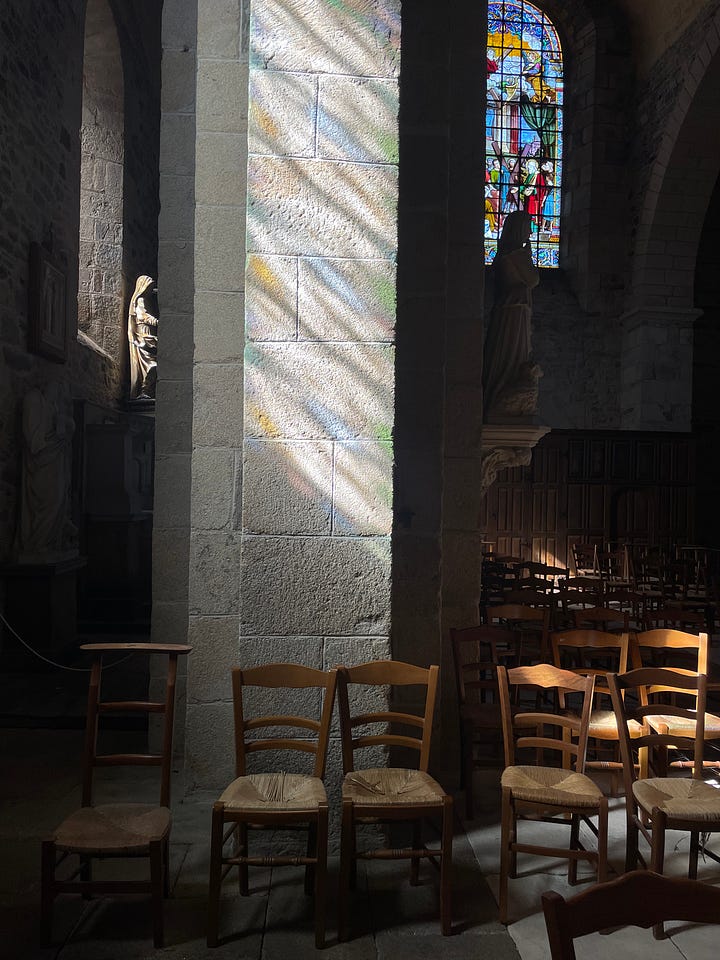
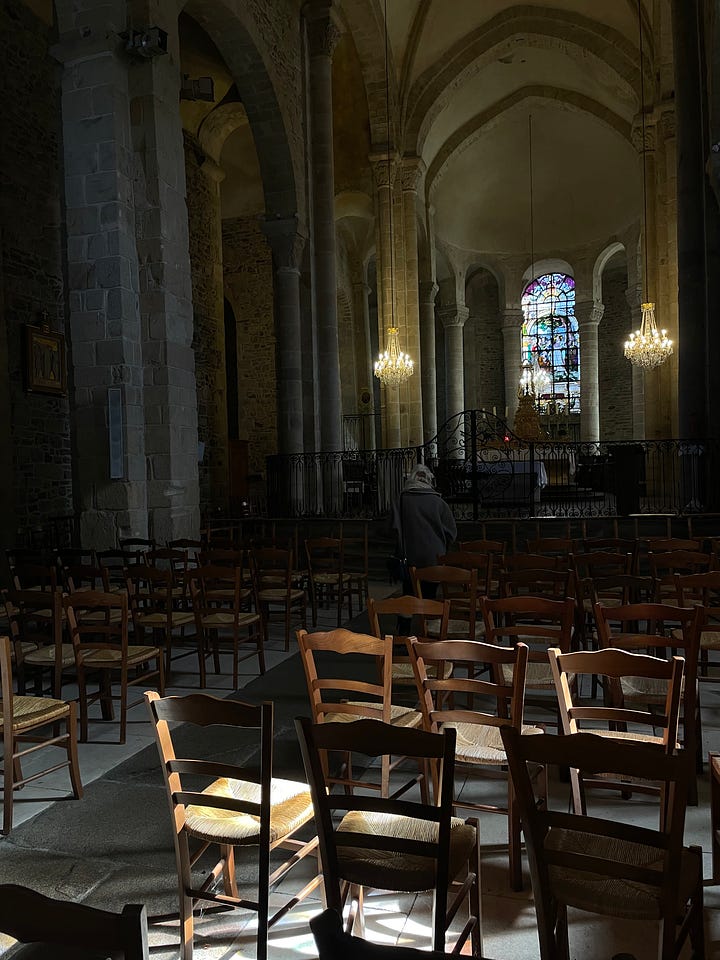
- The details of some houses, like these feathers 🪶
- The charming boucheries, cafés, boulangeries
Stories: A Conversation On Infinite Things With A Fellow Walker
Some days ago I met a fellow walking enthusiast in a bar in The Hague.
M. is an American man in his late fifties. I’ve been following his walks around the world from a distance but I didn’t know much about him other than the fact that we both shared a curiosity for walking in new places.
His life is very different compared to mine, so it was interesting to see where our ideas and thoughts clashed, and where our perspectives brought different things to the surface.
Among the many different ideas and questions that emerged out of our conversation, I was left with this question:
What’s the infinite thing that we are striving for?
M. was quite curious about my upcoming visit to New York and my fascination with this city that I have never visited before. “Why New York?” he asked. “It feels infinite”, I answered. He smiled and shared that it felt infinite for him for a while ever since he moved there in 1992, but at some point all “the things started to look the same”, the infinite seemed to fade away.
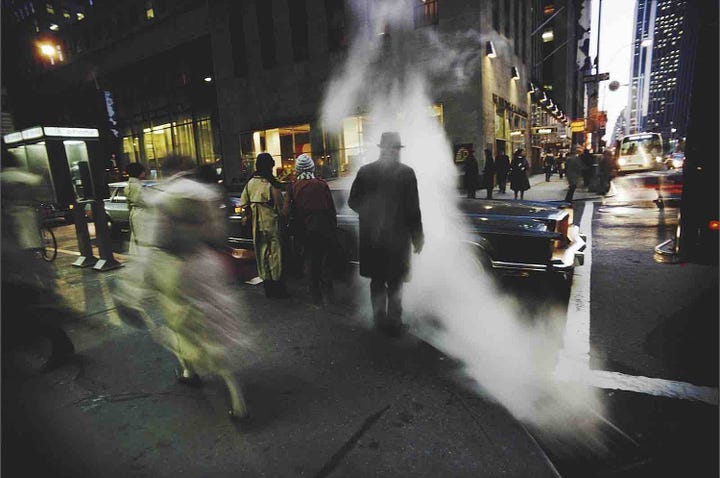
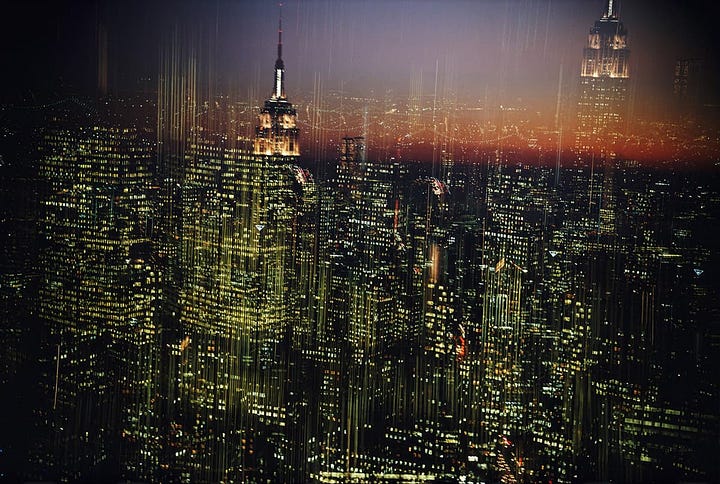
We continued to talk about the aura of places1, the authenticity that lies inside a place that cannot be reproduced, replaced, copied, and touched by the ideas of our time. He then confessed that Istanbul is one of his favourite cities in the world, and I confessed it is one of mine as well. I’ve visited Istanbul three times in the past decade and there are places that almost feel like they are alive, pulsating another type of world, another time, a special type of melancholy.
Orhan Pamuk writes in his book “Istanbul”:
“hüzün, which denotes a melancholy that is communal rather than private. Offering no clarity, veiling reality instead, hüzün brings us comfort, softening the view like the condensation on a window when a teakettle has been spouting steam on a winter’s day. Steamed-up windows make me feel hüzün, and I still love getting up and walking over to those windows to trace words on them with my finger. As I shape words and figures on the steamy window, the hüzün inside me dissipates and I can relax; after I have done all my writing and drawing, I can erase it all with the back of my hand and look outside. But the view itself can bring its own hüzün. It is time to come to a better understanding of this feeling that the city of Istanbul carries as its fate.”
―Orhan Pamuk, Istanbul
As the hours passed, we started talking about the sacred. I ordered some kibbeling (a Dutch snack consisting of battered chunks of fish, commonly served with a mayonnaise-based garlic sauce) to nibble on whilst I was enjoying my glass of white wine. He shared an experience about a place in his very recent walk in The Netherlands that moved him. I told him that whenever I talk with people who have experienced a sacred place, I feel like they are on the verge of crying. He nodded and his eyes went sad.
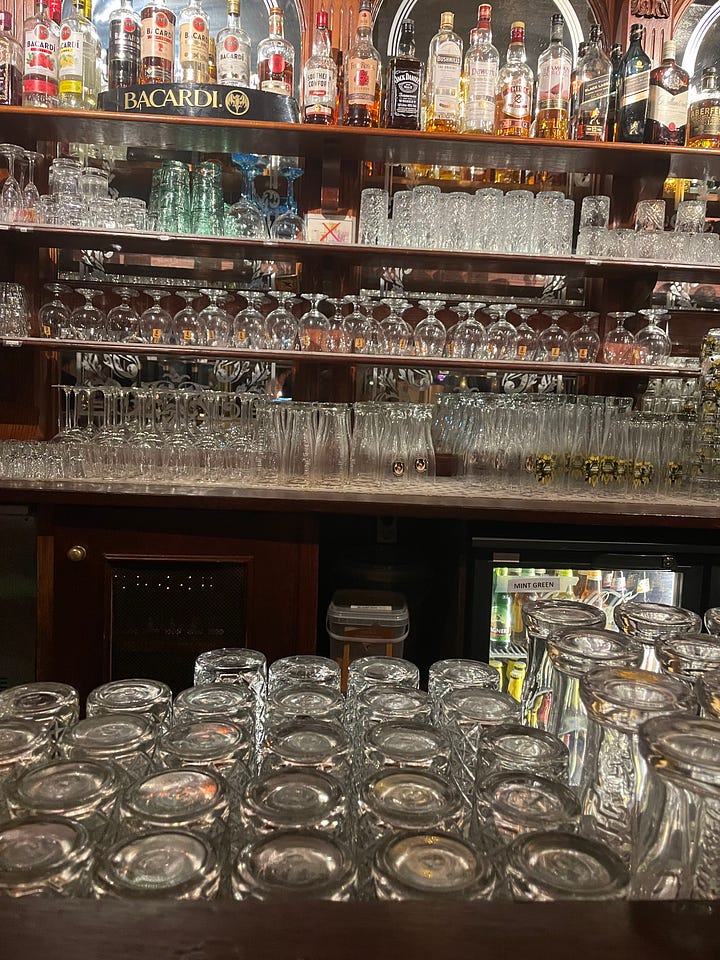
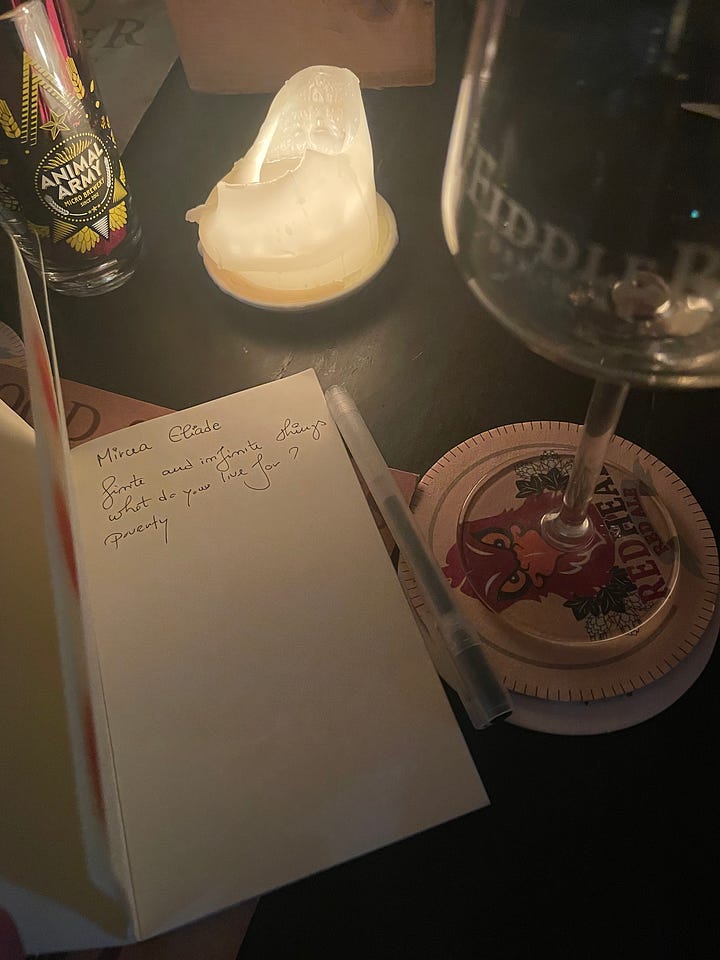
M. was quite confused about The Netherlands and the Dutch because he didn’t seem to grasp what they were living for, as a nation, as individuals. “Everything’s curated, clean, alright”, he said.
As a thirty-one year old woman who is living right now in her fourth country, I didn’t know what to think about nations and their collective meaning, as I don’t feel that I really belong to any country I lived in so far: Romania, Germany, Switzerland, The Netherlands. I feel European, that’s about it, but there’s so much diversity and history in this word “European” that it doesn’t help in boiling down my national identity to one single place.
As for M’s question “what do we live for?”, I pondered and pondered that night and eventually said to myself:
I live for good conversations and friends, wholesome encounters with strangers. I live for writing, reading, observing the world, using my senses. I live for imagination and what’s left after we are moved by the things that we cannot grasp.
I don’t know with clarity what M. lives for, apart from transcendence as he himself stated it. At the end of our four hour conversation, we said goodbye and parted ways on the streets of The Hague. I was left with an urgency to live, and the addicting satisfaction of a good conversation.
Thank you for reading, it means a lot!
As always, I welcome your feedback, stories, and questions.
Oh, I will be in Paris for a long weekend between the 24th of May and the 27th of May. If you are based there, I would love to meet you for a walk and a coffee - let me know in a private message.
If we are more than a few people, I am thinking of organising a salon and I will book a place at a bistro.
Onwards,
Patricia
The term was used by Walter Benjamin in his influential 1936 essay The Work of Art in the Age of Mechanical Reproduction. Benjamin argued that 'even the most perfect reproduction of a work of art is lacking in one element: Its presence in time and space, its unique existence at the place where it happens to be.' He referred this unique cultural context i.e. 'its presence in time and space' as its 'aura'.





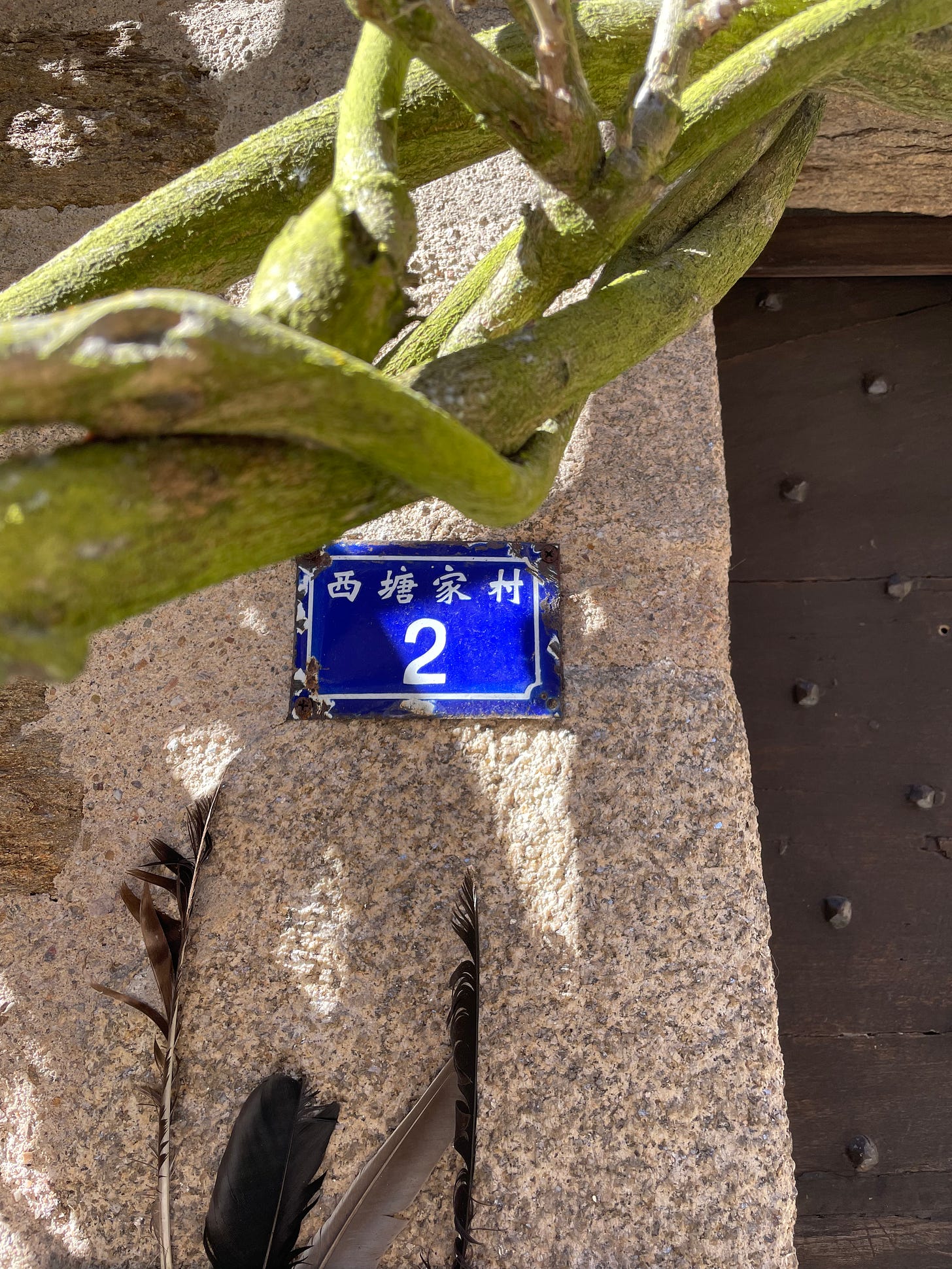
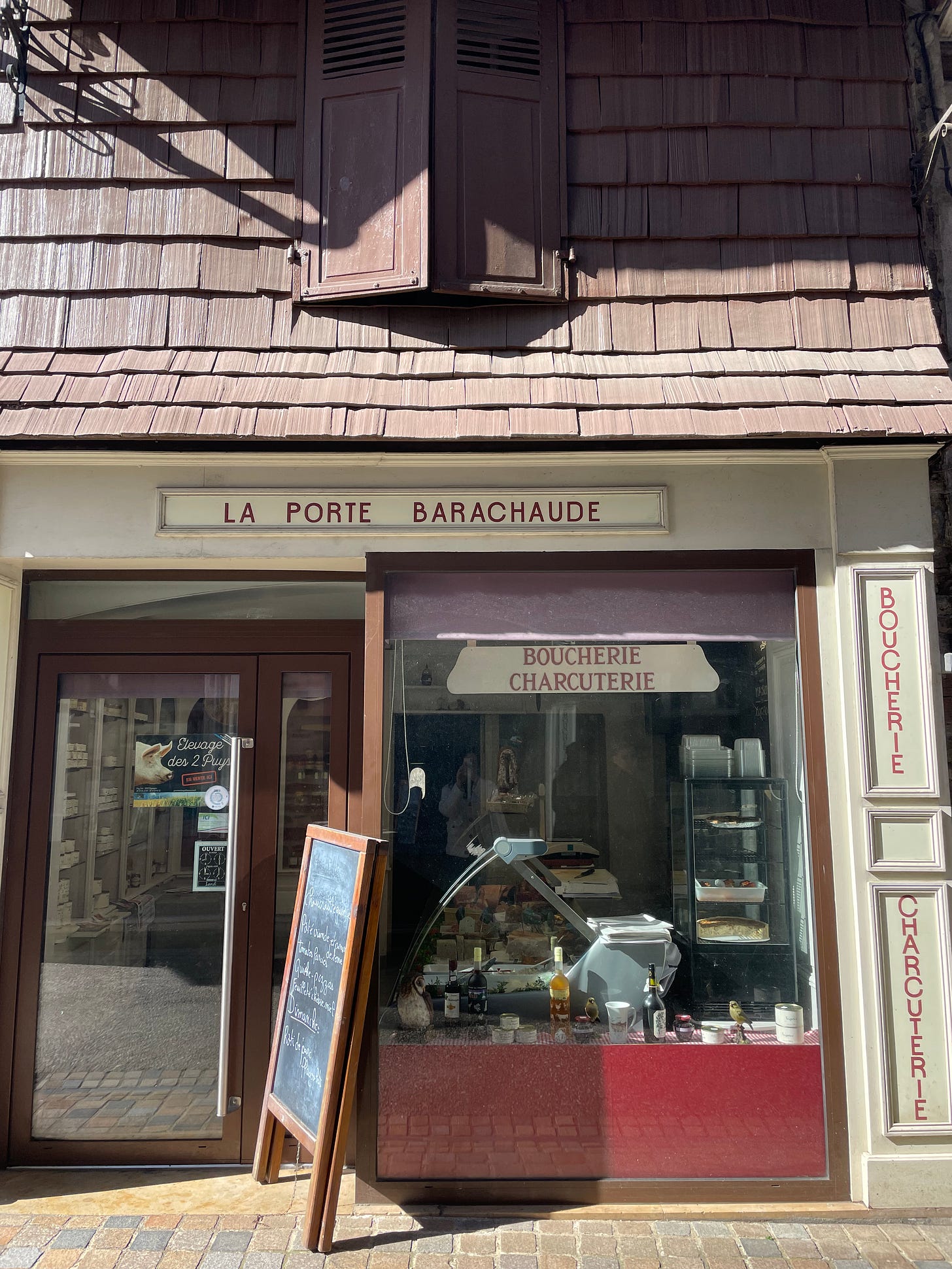
“I live for imagination and what’s left after we are moved by the things that we cannot grasp.”
Ah I love this so much! ❣️